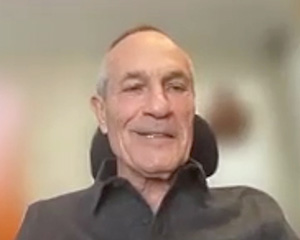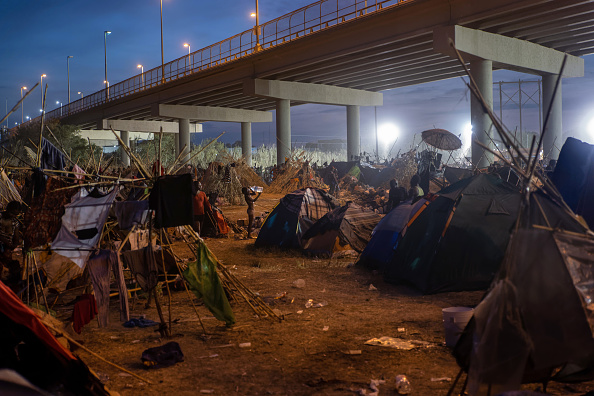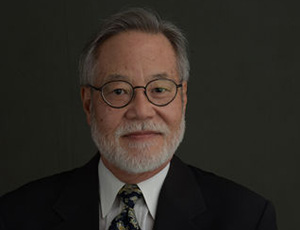The following is a transcript of the video interview above with Rep. María Elvira Salazar, lightly edited for clarity and presented here to enable users to search her comments.
DW Gibson: Hi everyone. My name is DW Gibson and I’m part of the team at Ideaspace. We’re a 501(c)(4) that strives for a fresh and even-handed portrayal of thought leaders and their ideas and for bipartisan legislative action in support of the most promising of those ideas. We want to tackle some of the most intractable issues of our times. And so we’ve begun with immigration. You can check out all of our research and analysis at Ideaspace.com. Today, as part of our interview series, I’m happy to welcome House member María Elvira Salazar, who in March released the Dignity Plan, a proposal for a systemic approach to overhauling the country’s immigration system.
Representative Salazar’s Dignity proposal features several components, including authorizing funding for a full border infrastructure system, asylum reform, enhanced interior enforcement, legal status for Dreamers, as well as pathways to temporary legal status for other law-abiding immigrants, guest-worker visa reform, mandatory use of E-Verify, and the Dignity proposal also includes a range of resources for small businesses, to help them weather the ongoing challenges presented by the global pandemic. Before she was elected Representative of Florida’s 27th district in 2020 María Elvira Salazar worked for decades as an esteemed journalist, interviewing everyone from Fidel Castro to Bill Clinton and George W. Bush. Thanks for joining Ideaspace today, Representative Salazar.
Rep. Salazar: Thank you for having me.
DW Gibson: So I want to dive right into your proposal, which from the start calls for a full border infrastructure system. Your plan, I think, does a pretty good job of getting specific at what that might look like. What are some of those components that you see as essential to that holistic approach to infrastructure?
Rep. Salazar: Well let me explain to you what Dignity is all about. And then from there, you can understand every component better. Dignity is, at this hour, the only immigration reform law that has been presented on the Republican side. I think that only a brown girl from the hood being a Republican could definitely bring some solutions to our immigration reform problems. And we should start with those people who are in the country that are illegal. We have, according to some of the estimates, around 11 million people that have been here probably more than five years, the overwhelming majority of them have been here for more than five years. Some of them have American kids. Most do not have a criminal record. They own property and they have a job and they’re paying tax. So that massive number of people including the Dreamers, the DACAs, the DAPA, the parents, and the TPS are all part of my Dignity program.
And what do I want to give them? I want to give them exactly that, dignity. Because up until 35 years ago when Ronald Reagan gave some type of Dignity or path to citizenship to those who were illegal at the time, we haven’t had anything, nothing comprehensive. We haven’t had anything for those people who are here and do not have papers. So what is Dignity? Dignity is not everything and is not nothing. It’s in the middle. Because right now, it’s always been, ‘Well, we don’t have a path to citizenship,” in one party. Then the other one says, well, that’s amnesty. And then it’s all these complicated terms that I’m trying to simplify for everyone.
What do I mean? My people. And I know what I’m talking about because I belong to district number 27, and I’m surrounded by illegals. I can talk to them in their native language. I can talk to them in their dialogue. I’m talking about Hondorians, and Guatemalans, and Nicaraguans, and Mexicans. And I’ve asked them if what I’m going to present to you right now, DW, works for them. And all of them say, yes. And that’s what I’ve done. And what they want is Dignity. And what does that mean? We’re going to give them a Dignity visa for three, four, five years, and can always negotiate that with the Democrats. And what does that give you? It gives you the ability to continue raising your American children, go home for Christmas, or to bury your dead, keep on working, paying taxes, no government assistance and no deportation. That’s pretty good for them.
So then they say, well, where’s the path to citizenship? Well, a pathway to citizenship is in the 11th year. And this path to citizenship has been a very nice tool used by the Democrats. I’m not saying that my people don’t want the path to citizenship, but it’s not what they want right now. Right now what they want is Dignity. So they can come out of a shadow. So they can continue working and cooperating in our American economy and live in peace. The path is later.
And I’m going to explain to you now what happens in the 11th year. Well, let me just give you a very important and very compelling figure. When Ronald Reagan gave Dignity or path to citizenship to 3.5 million Mexicans in 1986, less than 30 percent applied for citizenship. So that means that 70 percent of those people who had the ability and the possibility of becoming Americans and holding that blue passport chose not to. Why? Because what they want is Dignity. They do not necessarily want to be Americans. Because they’re very proud of being Hondorians, or Nicaraguans, or Salvadorians, or Mexicans. So what I’m offering is something that my people really want. It’s just that we have two layers in the middle, the political elite in Washington, and some of the Hispanic layers. So, in the 11th year, after you’ve been through the Dignity path, if you would like to be an American and be a citizen, then we’ll give you that possibility of paying fines, learning English, cleaning graffiti in the local parks. And then we’ll start that process. And they can always go to the back of the line. It doesn’t matter. That is not what we really need. We need Dignity. I think that I have covered some of your questions, but then tell me what else do you need to know?
DW Gibson: There are so many great points you made there. And I think the one that really stands out to me is this fact that we lose track, I think, as Americans, of the fact that not all immigrants, let’s say migrants, want to stay in the U.S. for a lifetime. They are looking to engage the economy in legal ways, in ways that our employers need them, and want to be here for maybe three years or five years or 10 years, and then go back home. I think that’s a really important point to hold in our minds as we try to wrap our heads around reform. And to that end, thinking about people that might engage the U.S. through the economy for a temporary amount of time, that’s something else that your plan touches on, right? So you include the idea of looking at our visa system and strengthening and making it better so that we can engage people that want to be here for a limited amount of time. What do you think are some of the things we can do to the temporary-worker visa program to improve it?
Rep. Salazar: Well, right now, I think that, that temporary-worker visa, it depends on the marketplace. And I have John Mark Kolb, who’s here next to me, who’s really the brains behind this. He is the one helping me write the 1,000-page bill that we will be introducing shortly into the hopper. But we would like to then take care of the people that I just told you about who are here already. We need to secure the border because what’s happening at the border right now, it’s a scandal. And I assure you, the people who are here already and have been here for more than five years, and they have established, and they have set roots into this country, do not necessarily like what’s happening at the border. Because what’s happening on the border is, what’s happening is the urgency, is the emergency. And it’s overshadowing the important. But what’s important? For the people who have been here for a long time to get some Dignity.
So I’m sure that we will start moving into a merit-based system. We should allow to come into the country whomever is going to contribute. That’s one side. So merit-based, definitely we can take it into steps. And then the asylum system. The asylum system is absolutely broken. Because if you are a guy that wants to come and pick up jalapeno peppers in Southern California, the only way for you to come in here is to say, “Hey, I’m here for asylum.” Whatever you need to say. I’m Mickey Mouse. It doesn’t matter. What you need to do is come in and work. So why don’t we give them the legitimate instruments for them to be able to come. And then we can determine which of those visas we need to give.
I’ll always, absolutely and always first and foremost, protect the American worker. The thing is that we know that by 2035, 35 percent of our workforce will have to come in. Will have to be from the immigrant hands. Because right now, when the economy is booming and, as it was before COVID, we had 6 million more jobs than hands. So if we want to continue being the number one economy in the world, we need growth. And where does that growth come from? People. And where are those people? Well, some are here and some are outside. So it’s very simple. It’s just that we need political willingness and desire to really, not to lie, to say the truth to the electorate and fix the problem.
DW Gibson: I really appreciate how you linked the idea, the asylum system with the guest-worker visa program. Because well, many people come to this U.S. claiming asylum, really needing asylum to escape danger. But absolutely there are abuses. And I think you’ve touched on one way that it gets abused. People who know there’s work for them in the U.S. who want to accept that work, but don’t see a legal way to go get that work. So these things are tied together, right? Creating ways for people to come into the country to work legally.
Rep. Salazar: And that is a very good point that you just mentioned. Because then think about the guy who does need, and needs protection, and needs asylum because he’s being raped, or being tortured or being persecuted in their own countries. Then the righteous are paying for the sinners. Because now our system is so gamed that someone who legitimately needs political asylum may not be getting it. So those people are also being compromised because the whole system is gamed and is rigged — and doesn’t work. Then on top of that, we need more resources for judges and for immigration administrators. People that will be able to determine if you do have reasonable cause to come in and be protected under the United States laws. So it’s easy.
I mean, the money is right there. Didn’t we just pass $1.9 trillion for COVID and only 10 percent of that money went for COVID-related programs? So everything is possible in this country. It’s just the political willingness that we need to find. So my party, the Republican Party, which has been pretty passive when it comes to immigration, I have been saying to them it’s time to rise up and to smell the votes and smell the coffee and smell what is really happening. And I’ve been saying to my fellow Hispanics, it’s time to rise up and understand that you’ve got to be voting for those members that will solve your problems. And our number one problem is immigration.
DW Gibson: Well, you’ve already touched upon two issues that we’ve seen in our research at Ideaspace that are big points of consensus. One is giving more funding to asylum courts, immigration courts. There’s widespread support for that. And also you mentioned a merit-based system sometimes called a point system. We have so many great examples of that working in other countries. And it’s something that I think there’s a lot of support for out there.
Rep. Salazar: Australia and Canada. They’re fantastic.
DW Gibson: Yeah. Absolutely. And as I mentioned, your plan is so comprehensive and it seeks reform across so many aspects of immigration policy, and you have some language in there that talks about sequencing, the need for some of these actions to be taken before others. I think that’s something that it might be good to hear you talk a little bit about, because I know that relates to the past, right? I mean, it’s a chicken-and-egg situation. And we want to make sure that we secure our borders while we deal with the undocumented population, so that population doesn’t continue to grow. Right? So there’s important sequencing here.
Rep. Salazar: Yeah. Because one side doesn’t believe in the other. Because it happened in ’86. Reagan, I’m sure in good faith, really thought that whatever the law was saying was going to be fulfilled and it never happened. So I understand that we need to create a very secure border. Whatever technology there is. It doesn’t matter. We’re talking about that. We have different types of technology. Where there are infrared cameras, where there are towers or robots, or I don’t know, but I know it’s available. Once again, it’s just the political willingness to spend the money on that technology. And then on that border, we need to have very wide doors. So those people that we need to come in legally and in an orderly fashion will be able to come in quickly and incorporate themselves into the marketplace. Because one of the things that concerns me the most is employers need employees. And there are none. And then that stifles our economic growth, which is very dangerous. I just said it, 6 million jobs with no hands. So the marketplace and the market will always find the resources that it needs in order to produce that product, to make that profit. Long live free market economy. That’s what we’re fighting for. But then let’s make it easy for that entrepreneur and bring those people that have the skills in a legal fashion, in an expeditious way. And then we’ll determine how long that person will be [in the country.] But then we will know who’s coming in from where, and then we won’t have this disarray that we have on the border right now. Because of a lack of political willingness.
DW Gibson: I’m so happy that you’re talking about this point in economic terms, because I think that so much of the immigration policy and border policy goes back to economic policy. And I wonder what you say to your constituents, who express fears that they have scarcity. That fear their job is being taken from them, right? That’s what we hear a lot. You’ve put out some figures now, even in this conversation that speaks to that. But it’s sometimes hard to marry the macro picture with the individualized experience.
Rep. Salazar: Absolutely. And that’s why we’re going to create the economic recovery and workforce retraining for displaced American workers. So the fees that we are imposing on the legal immigrants, which is around $1,000 a year, that money is going to go to this special fund so we can retrain the American born workforce that feels it has been displaced by the immigrants. But we also have to understand that there are many jobs out there right now that Americans could be occupying and they choose not to. They are specifically in agricultural and construction and hospitality. They are pretty bad jobs that no one really wants to do. So that’s why we need hands to do those.
The slaughterhouses are very tough jobs, but Central Americans are willing to do it because they have a point of reference. And it’s a lot better to be in a slaughterhouse, working for an American entrepreneur, than to be on the streets of Central America with no job and facing the gangs. So they feel so blessed. And they feel so honored to be able to be doing those jobs. So everything is whatever the marketplace demands. Remember, not everyone that wants to come to the United States or is going to come through the merit-based system is going to be an engineer or a doctor. We’re going to be needing people that clean the toilets in Manhattan, that will pick the jalapeno peppers in Southern California or the tomatoes in homes close to my district. So there is room for everyone. We just need to let them in, in an orderly fashion. There’s no rocket science to this. The Australians and the Canadians do it.
DW Gibson: I almost wish there was a way to communicate to Americans more effectively, that we’re all in the same boat together as workers. Right? And I throw out an idea to you. I feel we’re living in the age of corporations that have so much allowance in terms of being able to be international, right? They can have offices in Europe, in the U. S. They can think and operate in a global way. And I think we’re getting to a place where we realize the worker needs to be able to do that too. Imagine that an American might want to go work for a year in Europe or something like that. Giving an actual, true free labor market for everyone to enjoy within globalized capitalism, I think is really important. And I think finding a way for American workers to find solidarity with other workers is a way to do that.
Rep. Salazar: Absolutely. And never taking anything away from the Americans, from the American worker, never. But like I said, there is room for everyone. So if that American worker feels that he has been displaced, then maybe we can train him so he can do something better and then there’s more value added to what he is learning how to do now. Well, that job of very menial, very low-end job could be occupied by somebody that wants to come from abroad. But like I said, with Dignity. So going back to the people that live here already. The overwhelming majority of the illegals are brown like me. We’re talking about close to 80 percent, and no one talks to them and no one has asked them, what is it that they want? So when you hear this, we want a path to citizenship, that is not necessarily true. They want Dignity first and path second.
DW Gibson: That sentence you said just now is so important. Asking them what they want. So many assumptions, right? In terms of the “Latino voting block,” right? And we saw in the last election and your district in particular and other districts, that it’s not monolithic.
Rep. Salazar: Because we all want, Republicans and Democrats, when it comes to being brown, we want one thing first, Dignity. And we want to be able to raise our kids freely, American kids by the way, freely, without the spectre of being deported at any time in the middle of the night. Enough with that. Enough. So it’s time for someone to speak for them, and that is me. And I have no problems in telling my party and the Democrats, what they have done right and what they have done wrong. You know why? Because I’m brown. I know them. I speak their language. I was a Central American bureau chief, a war correspondent during the Salvadorian war. So I know them very well. I know the Salvadorians, the Hondorians, the Nicaraguans, and the Mexicans. I lived in all those countries. And now I’m in Congress.
DW Gibson: And I think that experience is absolutely valuable. It comes across in your proposal. It comes across in this conversation. One final thought or question to throw your way, and you’ve spoken to this a bit, but I’d like to maybe have you speak to it more directly. I wonder how we can go about restoring trust on immigration policy across the political aisle. And I’ve talked to conservatives who –you alluded to this –felt burned by the 1986 agreement because it promised workplace enforcement mechanisms that never fully kicked in after the amnesty was granted. And then liberals feel Obama deported 40 million undocumented immigrants in an effort to show that he was tough on security and it didn’t pay dividends necessarily. I think both parties feel burned. Talk to me a little bit about how you think we can address that feeling and get past it?
Rep. Salazar: I think that’s a very good question. And I would say that it’s the most difficult. And that’s where I think I could help not only the political elites, but to help the country. We are all Americans and we want the best for our children. If we do not fix the immigration system, we’re going to have very important social problems and economic consequences with lack of growth. We need to grow up and be adults and fix the number one problem that we have as a country. So I think this is in parallel. We will not give Dignity until we know the border has been secured and has been put in order. So then everything that we’re going to build with this Dignity Act gets put into practice. So it’s a two-pronged approach, in parallel. So both sides will feel that no one has been fooling them. And that what was promised will be fulfilled well.
DW Gibson: Right. And when you announced your plan in March, you had some colleagues there with you. I noticed John Curtis from Utah, who we’ve spoken to before. I wonder, do you feel like your colleagues are hearing you on these points you’re making? I’m just so delighted to hear a Republican making these points. And I think that your voice is so important. And I hope your colleagues are hearing you. Are they hearing you?
Rep. Salazar: Listen, some are not. But you know what? I have 11 million illegals with me. I have the 60 million Hispanics who live in this country with me. So they will listen from both parties. Because the people that are going to be most affected are with me. And how do I know that? Because I was one of the founders of Spanish Television. I know how to get to them in their language, in their culture. And regardless of whether they are Democrat or Republican or independent, it doesn’t matter. They all want one thing, Dignity.
DW Gibson: Well, I’m so grateful for your time today, Representative, and I’m so grateful for your perspective.
Rep. Salazar: I have good staff. They put it all together.
DW Gibson: You have a fantastic staff. You do. And I think your perspective is so valuable. My hope moving forward will be that your party elevates your voice. Because I think that, on this issue in particular, you speak about it very differently and very productively. And I’m grateful for that. So thank you so much for that.
Rep. Salazar: You need to be brown to understand these things. So I’m doing it for the benefit of the country, not necessarily of the Republican Party. We’re all Americans. We’re here for the benefit of our future generations, which includes my children and probably your children. And some of the people’s grandchildren. We’ve got to leave the place a better place than we found it. That’s what I’m doing. Thank you very much.
DW Gibson: Thank you so much, Representative, take care.
Rep. Salazar: All right. My pleasure. Anytime.
Read More:

Capitol Hill Briefing No. 4





